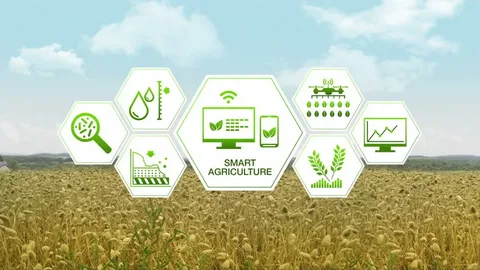The agriculture sector has witnessed a significant transformation in recent years. With the integration of technology, traditional farming is evolving into a more efficient, sustainable, and data-driven industry. At the forefront of this revolution are smart agriculture startups changing the farming industry, bringing innovative solutions to age-old problems.
The Rise of Smart Agriculture Startups
Smart agriculture startups are leveraging cutting-edge technologies such as IoT (Internet of Things), AI (Artificial Intelligence), drones, and precision farming tools to optimize crop yield and reduce waste. These startups are addressing critical challenges faced by farmers, including water scarcity, unpredictable weather, and soil degradation.
By using sensors and data analytics, these companies enable farmers to make informed decisions about irrigation, fertilization, and pest control. As a result, farming becomes not only more productive but also environmentally sustainable.
Key Innovations Driving Change
- Precision Farming: Startups are introducing GPS-based and sensor-driven systems that allow farmers to monitor soil health, crop growth, and nutrient levels in real-time. This minimizes resource wastage and maximizes productivity.
- Automated Machinery: Robotics and AI-powered machines are handling labor-intensive tasks like planting, harvesting, and weeding. This reduces labor costs and increases operational efficiency.
- Smart Irrigation Systems: Water management is critical in agriculture. Startups have developed smart irrigation solutions that supply the right amount of water to crops based on soil moisture and weather conditions, conserving water while improving yield.
- Supply Chain Optimization: Some startups are focusing on streamlining the farm-to-market supply chain using blockchain and digital platforms, ensuring better pricing for farmers and reduced post-harvest losses.
The Impact on Farmers and the Industry
The influence of smart agriculture startups changing the farming industry goes beyond technology adoption. Farmers now have access to real-time insights, predictive analytics, and automated solutions, allowing them to increase productivity while minimizing environmental impact. These startups are also creating opportunities for rural employment in tech-driven farming and data analysis roles.
Challenges and the Road Ahead
Despite their potential, smart agriculture startups face challenges such as high initial costs, lack of awareness among farmers, and infrastructural limitations in rural areas. However, with supportive government policies, investment in agri-tech, and increasing farmer education, these startups are poised to reshape the agricultural landscape.
Conclusion
The future of farming lies in innovation, and smart agriculture startups changing the farming industry are leading the charge. By integrating technology with traditional practices, these startups are ensuring a more sustainable, efficient, and profitable agricultural sector for generations to come.


